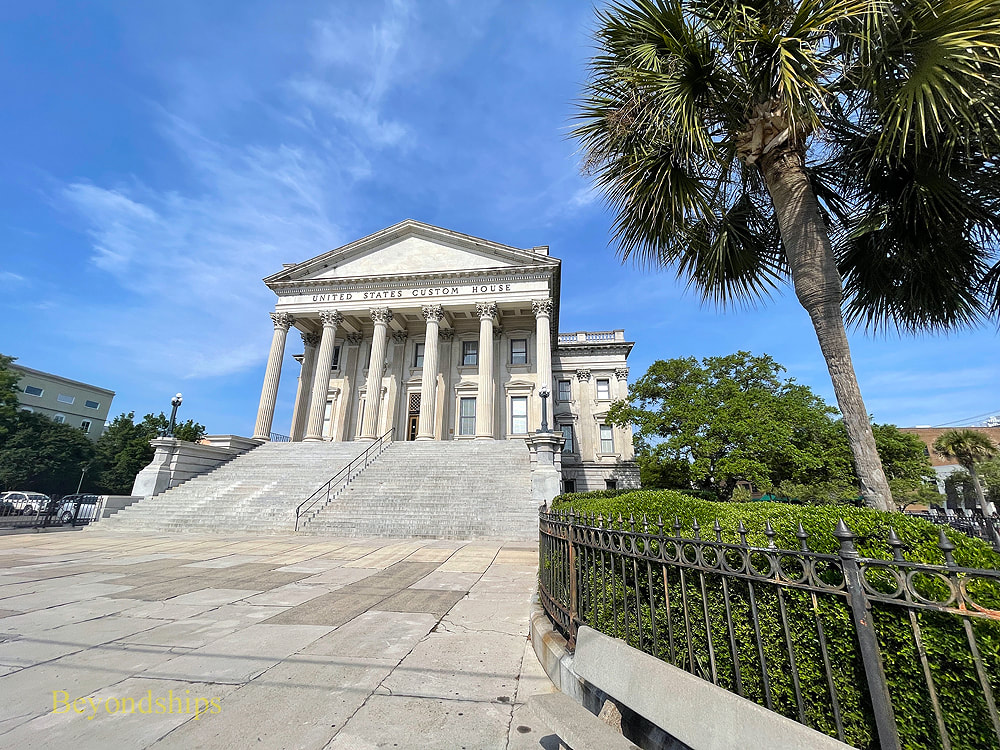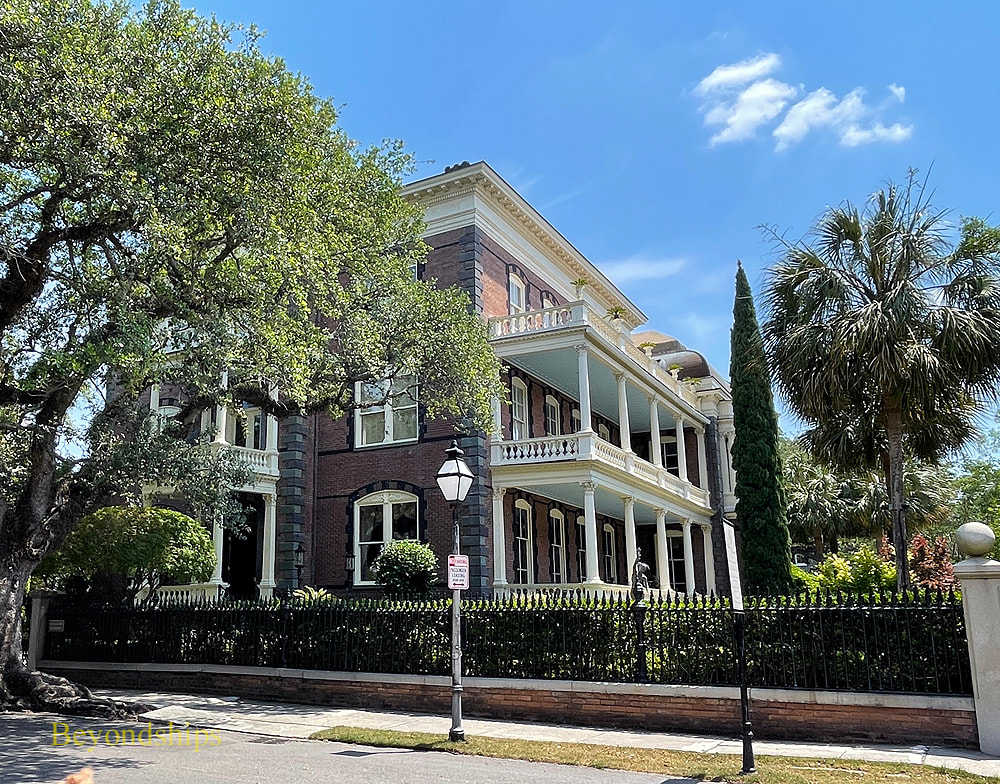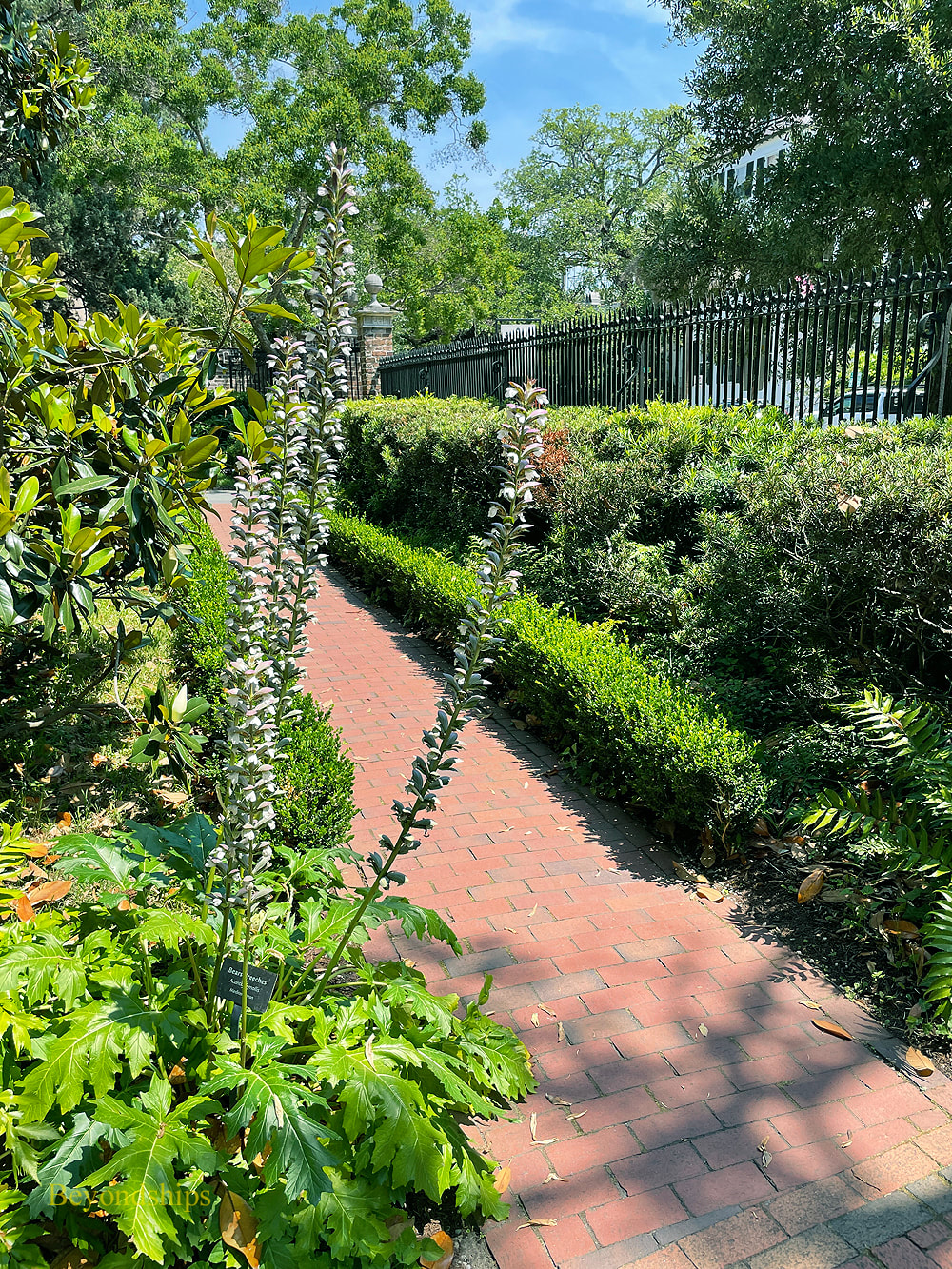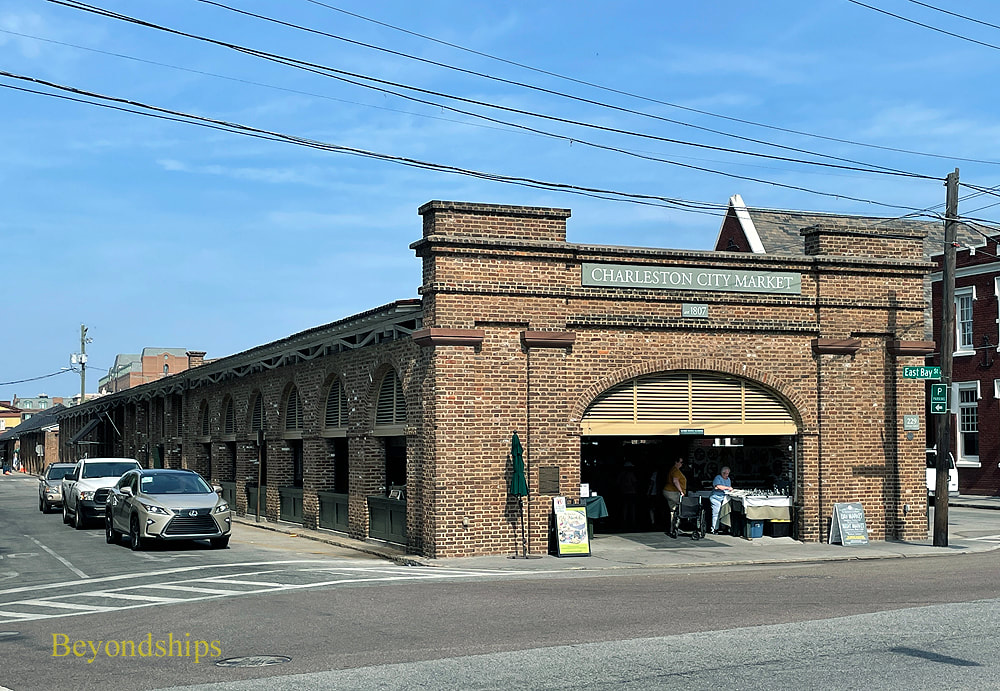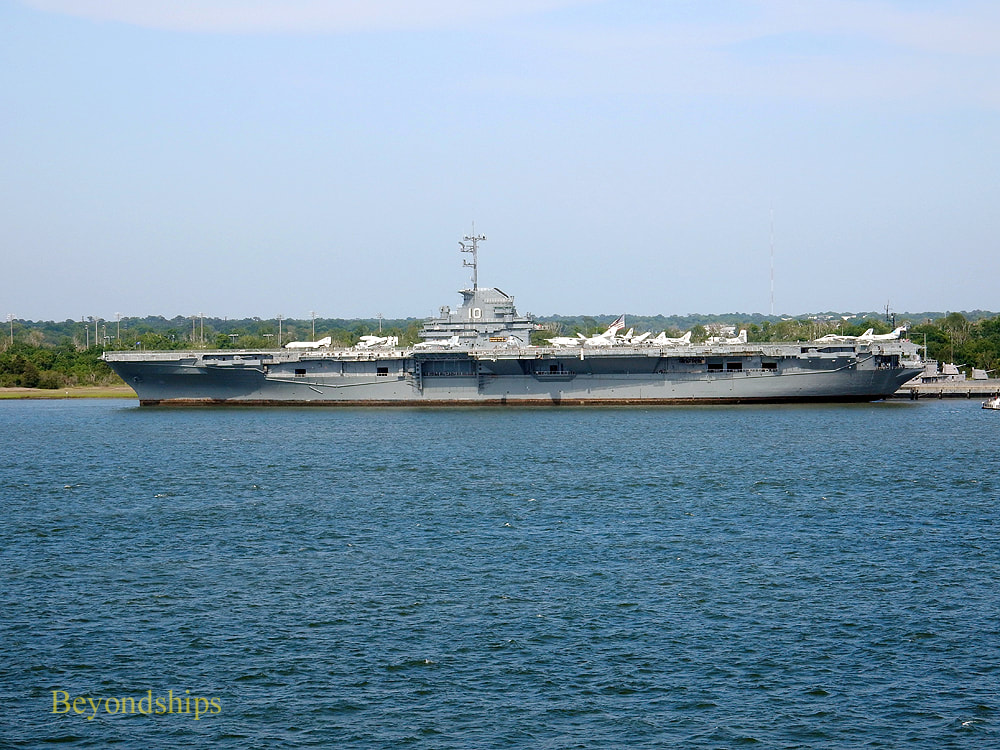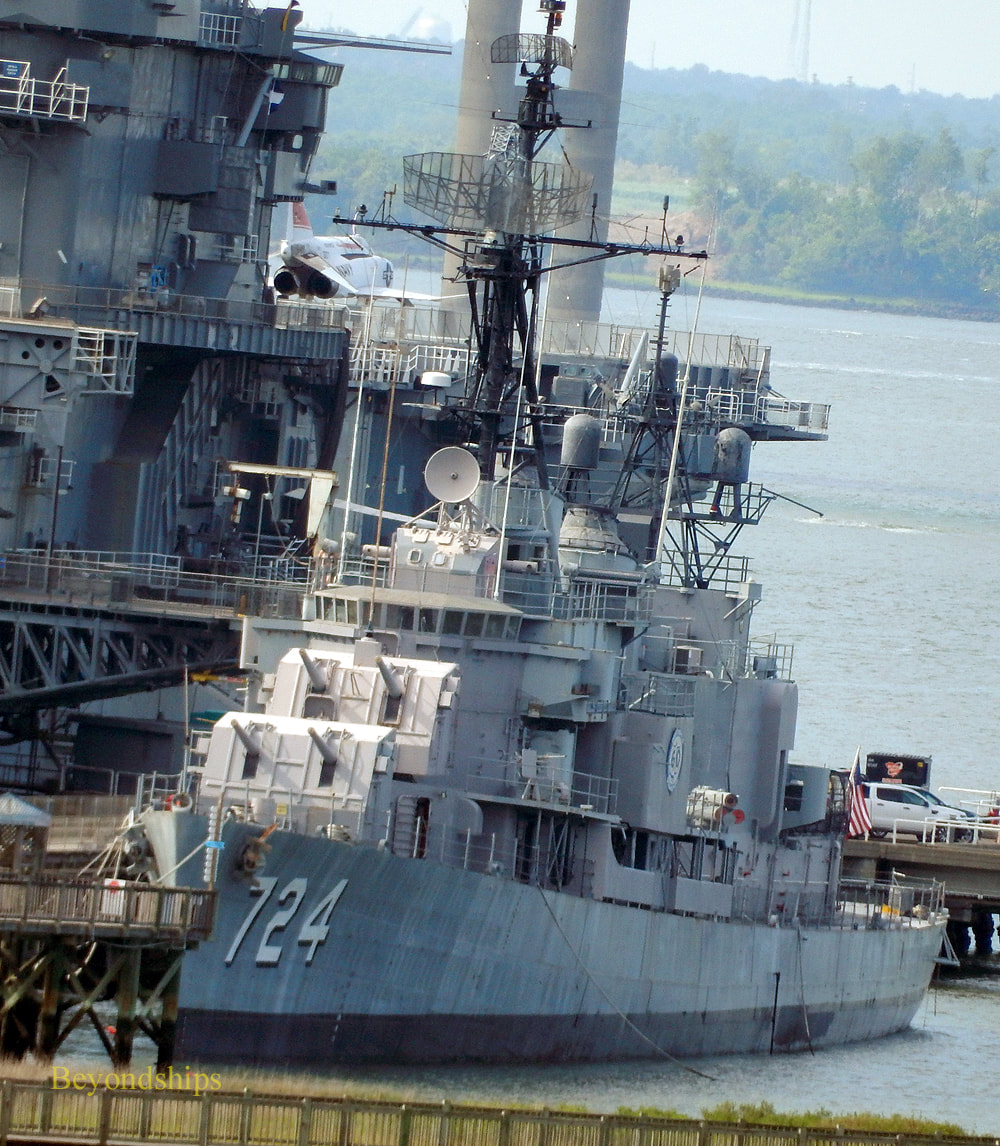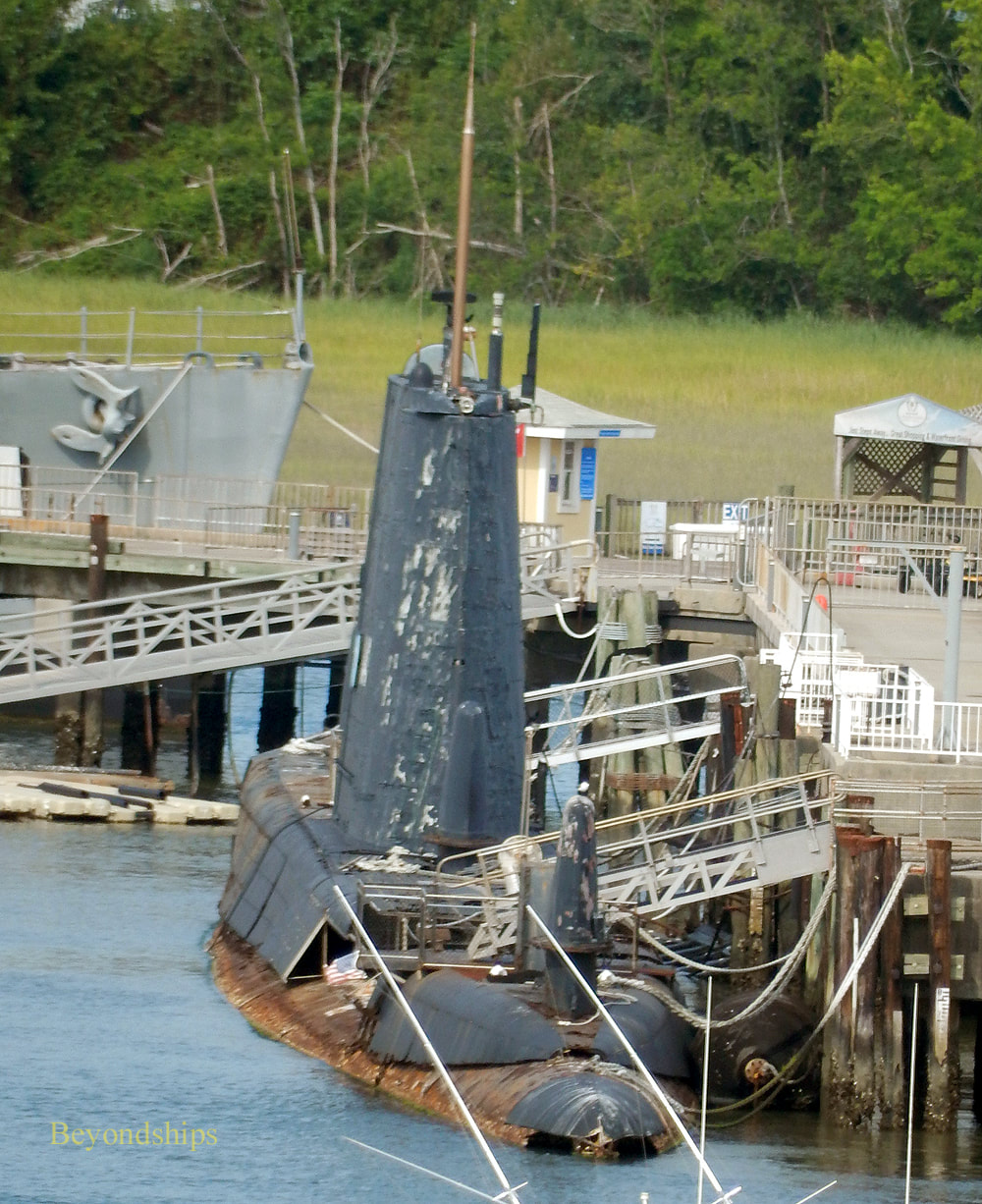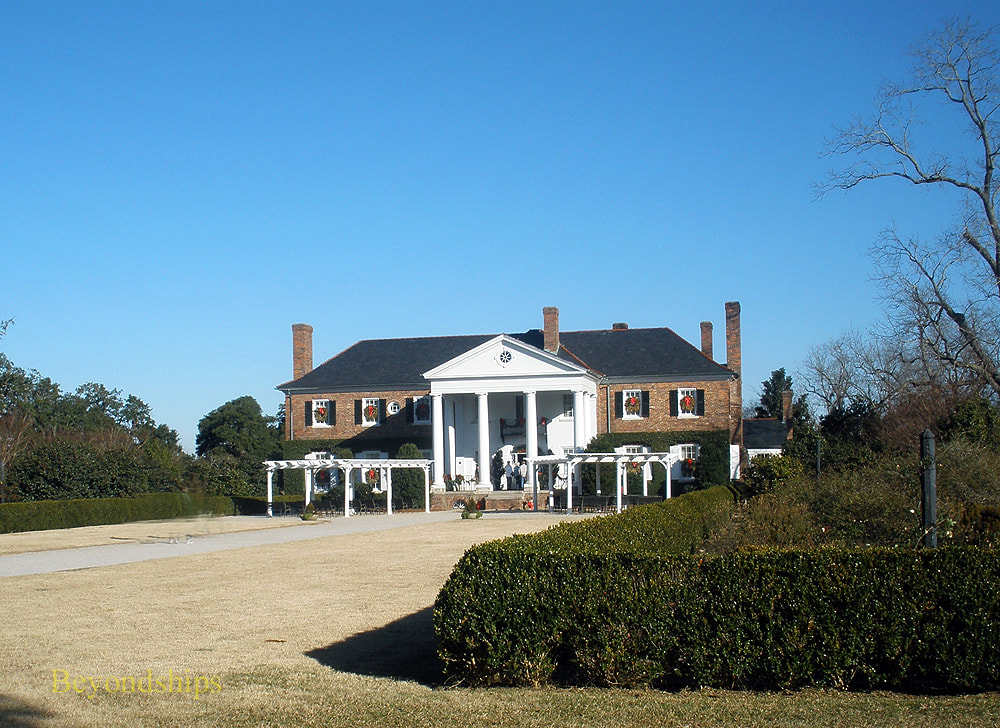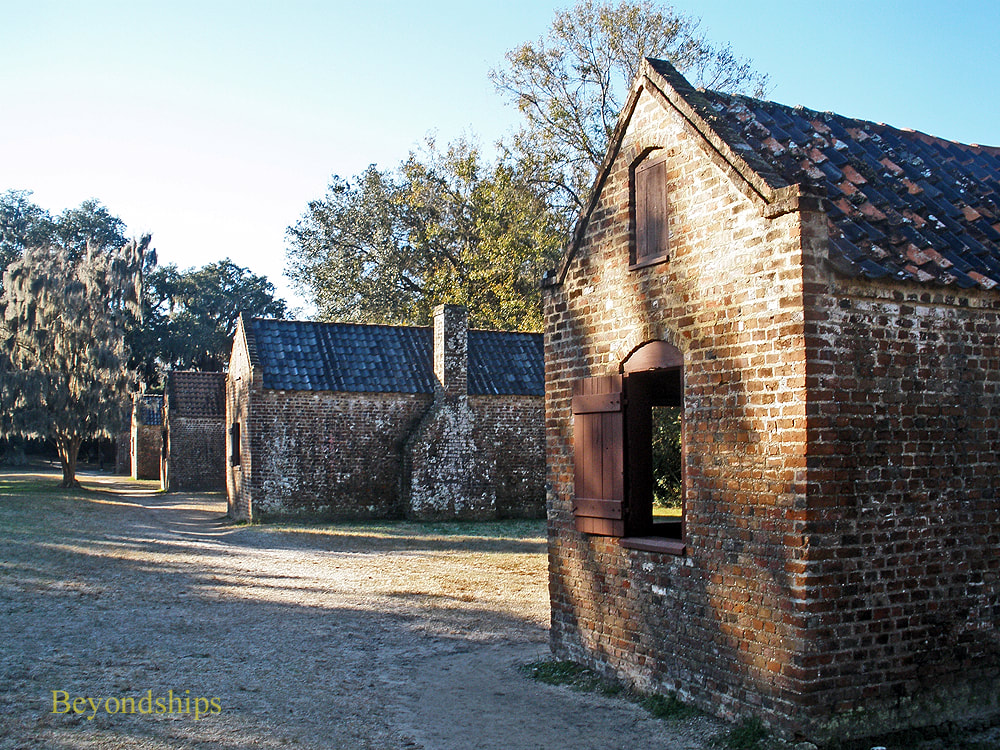ATTRACTIONS
The Historic District
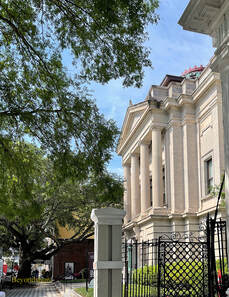 Gibbes Art Museum Gibbes Art Museum
The Charleston Historic District (sometimes called the Old and Historic District) was the first historic district in the United States to be protected by local law. Since 1960, it has also been designated as a National Historic Landmark.
There are approximately 1,400 historic buildings in the district covering a diverse array of architectural styles including Georgian, Regency, Federal, Adamesque, Classical Revival, Greek Revival, Italianate, Gothic Revival, and Queen Anne. In addition to mansions and their outbuildings, the area includes numerous historic churches as well as one of the oldest synagogues in the United States. Several of the historic buildings have been restored to their original state and are open to the public. In addition, the historic district is home to a number of museums including Charleston's art museum, the Gibbes Art Museum (see separate profile). The Old Slave Mart Museum looks at the past from the perspective of its African-American enslaved people. There is also shopping. At the 200 year-old Charleston City Market vendors produce hand-made crafts. Visitors can walk tree-lined streets some of which are still paved with cobblestones. Alternatively, horse-drawn carriages take visitors on leisurely rides through the district. |
|
Patriots' Point Naval and Maritime Museum
|
Across the Cooper River from Charleston in Mount Pleasant is the Patriots' Point Naval and Maritime Museum. In 1970, the Patriots' Point Development Authority was tasked with the responsibility for creating a naval and maritime museum in Charleston harbor centered upon the retired U.S. Navy aircraft carrier USS Yorktown (CV 10). Today, it is home to three historic ships and 28 aircraft as well as the Medal of Honor Museum and a 3-acre Vietnam Experience. It attracts some 300,000 visitors each year and is one of South Carolina's most popular attractions.
USS Yorktown remains the centerpiece of the museum. This Essex-class aircraft carrier was built during World War II and was named after the previous USS Yorktown (CV 5), which was sunk at the Battle of Midway. This Yorktown served in the Pacific during World War II and earned 11 battle stars and the Presidential Unit Citation. She was re-commissioned during the Korean War and served during the Cold War and the Vietnam War. Yorktown was also the recovery ship for the Apollo 8 space mission. Decommission in 1970, she has been with the museum since 1970. Also at Patriots Point is the former U.S. Navy ship USS Laffey (DD 724), a Sumner class destroyer. Built during World War II, Laffey participated in the D-Day landings before being transferred to the Pacific. During the Battle of Okinawa, Laffey was severely damaged while fighting off a fierce attack by Japanese bombers and kamikazes earning the name “the ship that would not die.” After World War II, she participated in the atomic bomb test at Bikini Atoll, fought in the Korean War and served during the Cold War. She was decommissioned in 1975. The third ship at Patriots Point is USS Clamagore (SS 343). This Balao-class submarine was built too late in 1945 to see action in World War II. Although powered by conventional diesel fuel, Clamagore continued to serve through much of the Cold War until 1975. She became part of the Patriots Point Museum in 1981. However, the severe deterioration of her hull has left her future in doubt. There are tour boats to the Fort Sumter Memorial from Patriots Point. For more information on visiting, see the Patriots' Point Naval and Maritime Museum website. |
Above: USS Yorktown (CV 10).
Below: USS Laffey (DD 724) Above: USS Clamagore (SS 343).
|
Boone's Hall Plantation and Gardens
|
Boone Hall Plantation and Gardens is located outside of Charleston in Mount Pleasant, S.C. It has been a working planation for over 320 years and is listed in the National Register of Historic Places. Open to the public, it is frequently on tour and shore excursion itineraries.
The planation was started in the 1680s by a Major John Boone, who apparently was not all that much of a savory character, being twice removed from the colony's Grand Council. The plantation changed hands several times over the centuries. In the 19th century, it became a leading producer of pecans. A 20th century owner raised race horses on the Plantation. While the current plantation house looks like an antebellum mansion, it was actually built in the Colonial Revival style in the 1930s. Visitors can tour its first floor as well as the formal gardens around the house. The historic slave cottages are still standing and there are talks and exhibits about the enslaved people. Many of Charleston's historic buildings used bricks made by enslaved people on the Boone Plantation. There are also tractor tours of the grounds. For more information on visiting, see the Boone's Hall Plantation website. |
Above: Boone's Hall.
Below: The slave quarters. |
|
|
ATTRACTIONS continues with a look at Fort Sumter
For more about cruising to Charleston
Click here for our Charleston cruise port page Click here for our Charleston home page |
|
|
|
Cruise destination - Charleston, South Carolina, United States - Charleston Attractions - page 1
